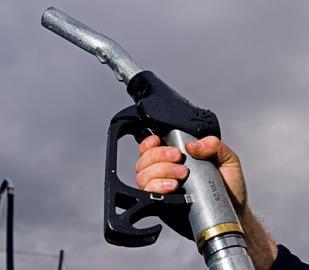Lobby group FairFuelUK is claiming it has “credible intelligence” that the government is planning to hike fuel duty by 10p per litre in the October Budget.
The claim comes as Prime Minister Keir Starmer warned the Commons that the state of the UK’s economy was “worse than we ever imagined”, accusing the Conservatives of leaving a £22bn black hole.
Under successive Conservative governments fuel duty has been frozen and in the March Budget this year was cut by 5p per litre.
FairFuelUK noted that whilst Starmer said yesterday that there would be no increase in income tax, VAT, or national insurance, he did not mention fuel duty in his speech.
FairFuelUK founder Howard Cox, added: “I have credible intelligence that the Treasury has virtually settled, through its internal economic modelling, on increasing fuel duty by 10p/litre.
“For nearly 15 years, I have proven that hiking levies on one of the highest-taxed motorist sectors in the world would damage the economy, jobs, inflation, business investment and freedom of movement.
“Such a punitive hike will also stifle growth, which may be why his speech did not even mention Labour’s central campaigning pre-election mantra.
“The inevitable move to Big Brother pay-per-mile taxation, which Labour plans to work alongside the declining fuel duty income, will undoubtedly be announced in the budget too.
“I predict the net outcome from the October Budget is that the UK’s 37m drivers are set to be fleeced on a scale not seen since 1997 to 2010 when Labour increased fuel duty by a staggering 46%.”
Logistics UK is urging Chancellor Rachel Reeves to keep fuel duty at its current rate, to enable the industry to play its part in driving economic recovery.
The association estimates the weekly fuel bill for a 44-tonne diesel HGV is currently around £888, with £436 taken in fuel duty by HMRC.
Logistics UK policy director Kevin Green, said: “With the sector already operating on extremely narrow margins – often only 2.5% - increasing fuel duty would heap the cost pressure on operators.
”This would not leave enough spare cash for our industry to implement the necessary steps to take us into a net-zero future without passing on the cost to the end customer, something our members are loath to do.
“With wage costs and the price of new vehicles rising, pressure on the logistics industry continues to mount, at a time when the sector is committed to helping kickstart economic recovery and growth.
”Rather than stifle the increased economic activity which our industry is able to drive, we need Ms Reeves to consider other alternatives to fill the fiscal gap.”
RHA has raised its concerns too, pointing to a 10% increase in insolvencies in the haulage sector in the last year.
Richard Smith, RHA MD, said: “The cost of operating an HGV has increased by 10% over the past year and as a consequence, a number of hauliers have gone out of business with some operators running at a loss and profit margins wiped out completely. The average profit margin of businesses in our sector today sits at just 2%.
He added: “In the road freight sector alone, almost 500 hauliers went out of business last year, and regrettably, it’s now over 250 so far this year - with a 10% increase in insolvencies in our sector, compared to the same period in 2023.”
Turning to fuel costs, Smith said these amount to a third of costs for operators. “Hauliers face a competitive disadvantage across the European market too as diesel prices remain significantly higher here than in most European nations.”
He called for the government to address increased supply and demand by incentivising the uptake of low-carbon fuels such as HVO - which can reduce emissions by 90% and for the introduction of a fuel essential user rebate linked to emissions reduction.
“Such a move would bring UK fuel duty levels closer to those across Europe,” he said.
Asked if FairFuelUK’s claim that fuel duty is set to rise, a Treasury spokesman told MT: “Following the spending audit, the Chancellor has been clear that difficult decisions lie ahead on spending, welfare and tax to fix the foundations of our economy and address the £22bn hole in the public finances left by the last government.
”Decisions on how to do that will be taken at the Budget in the round.”

















